When it comes to taxes, the difference between paying more and paying smart often comes down to knowing the right strategies and executing them correctly. These four proven tax strategies for business owners can help you keep more of what you earn, build generational wealth, and reinvest in your future.
The U.S. tax code rewards proactive planners. Whether you’re a business owner, investor, or high-income earner, these four overlooked tax strategies for business owners like executive retreats, S-Corp elections, vehicle deductions, and family payroll can collectively save you thousands each year. When implemented correctly, they reduce taxable income, optimize entity structure, and keep your money working inside your business and family.
1. Executive Retreat Trip: Rent Out Your Own Place to Your Business
You can host a legitimate business retreat or meeting at your home and rent the property to your business at fair market value.
- Deduct the rental expense from your business income.
- Receive tax-free rental income personally under the Augusta Rule.
You’ll need a written rental agreement, clear documentation of the business purpose, and proof that the rent charged is reasonable. Done right, this strategy can yield thousands in tax-free income annually.
For more details on how the IRS treats short-term home rentals, see IRS Topic No. 415: Renting Residential and Vacation Property.
2. The S-Corporation Switch: Pay Less in Self-Employment Tax
If you’re earning significant income as a sole proprietor or single-member LLC, electing S-Corp status can substantially reduce self-employment tax.
- Pay yourself a reasonable salary (subject to payroll taxes).
- Take remaining profits as distributions, free from self-employment tax.
The key is compliance: handle payroll properly, maintain corporate records, and keep clear documentation.
3. The Boss Car Strategy: Deduct Your Business SUV
Buying a qualifying vehicle over 6,000 lbs GVWR can unlock major write-offs under Section 179 or bonus depreciation. When primarily used for business, you may deduct up to $50,000 (or more, depending on current limits) in the first year depending on the cost of the vehicle.
Maintain mileage logs and business-use documentation, the IRS rewards proof, not assumptions.
4. The Family Payroll Strategy: Hire Your Kids (Legally)
If your children perform real work like filing, social media, packaging, or admin tasks, you can pay them a reasonable wage. The first $15,750 (2025 standard deduction) is tax-free to them.
This hire your kids tax strategy shifts income to a lower bracket, provides your business with a deduction, and helps your kids start building wealth early.
Watch: How to Hire Your Children (W2 vs 1099s) Learn exactly how to set up payroll for your children the right way, the difference between W-2 and 1099 classification, and how to document everything correctly for IRS compliance.
How to Deduct Travel Expense
Business-related travel can be one of the most underutilized deductions for entrepreneurs and investors. Understanding the rules for deducting travel expenses for business can help ensure you’re maximizing legitimate write-offs while staying compliant with IRS guidelines.
When properly documented, many of your trips that involve client meetings, real estate inspections, continuing education, or professional development can be partially or fully deductible.
What Qualifies:
- Airfare, hotels, and rental cars for business trips.
- Meals and entertainment are directly tied to business discussions.
- Conferences, seminars, or networking events that relate to your trade.
Get our Generational Wealth Formula and learn how to deduct your business travel expenses while staying IRS-compliant!
Documentation Is Key:
Always keep receipts, note the business purpose for each expense, and retain itineraries or event confirmations. Personal vacations that include a few business meetings do not qualify, only the business portion is deductible.
Pro Tip:
Combine travel with business development. For example, attending a real estate conference in another city or scouting new investment properties can make portions of your trip deductible while advancing your business goals.
For a deeper look at timing, rates, and deferral techniques, read our related guide: Capital Gains Tax Planning: Essential Strategies for High-Income Earners
FAQs
Can I rent my house to my business every month?
Only up to 14 days per year can be excluded from income under the Augusta Rule. More than that must be reported as rental income.
How much should I pay myself through an S-Corp?
A “reasonable salary” based on your role and industry, supported by comparable wages and business performance.
What if my SUV is partly personal use?
Deduct only the business-use percentage. Accurate mileage logs are essential.
Can my kids really earn money tax-free?
Yes, if they do legitimate work and earn under the standard deduction. Keep job descriptions and time sheets.
Do I need an LLC or corporation?
Not always, but formal entities strengthen compliance and expand your planning options, especially for S-Corp or Augusta Rule setups.
Watch this video to discover the best structure for your business and real estate: LLC, S Corp, or Holding Company? LLC vs. S Corp vs. Holding Company: How to Structure Your Business and Real Estate the Right Way
Want Help Setting This Up?
Reach out to INVESTOR FRIENDLY CPA® for expert guidance on turning your business and family into a tax-smart, wealth-building team. We’ll help you structure it correctly, so you save money, stay compliant, and build generational wealth.
Our Services Include:
- Customized family payroll plans
- IRS-compliant job descriptions and documentation
- Payroll setup for children and spouses
- Entity structuring and long-term wealth strategies
- Guidance on travel, auto, and business expense compliance
Toll-Free: 1-800-522-6091
Website: www.investorfriendlycpa.com
Schedule a Strategy Call Today and take the first step toward smarter tax planning.
- Hosting business retreats at your home can generate tax-free rental income under the Augusta Rule (IRC §280A).
- Switching to an S-Corporation can cut self-employment taxes and boost after-tax profits.
- Purchasing a 6,000+ lb SUV or truck for business use can unlock large deductions under Section 179 or bonus depreciation.
- Hiring your children for legitimate work lets you shift income into a lower tax bracket while teaching financial literacy and funding their future.
- Every strategy must be properly documented, supported by real business activity, and reviewed by a professional to stay compliant.




.png)

.png)


.png)










